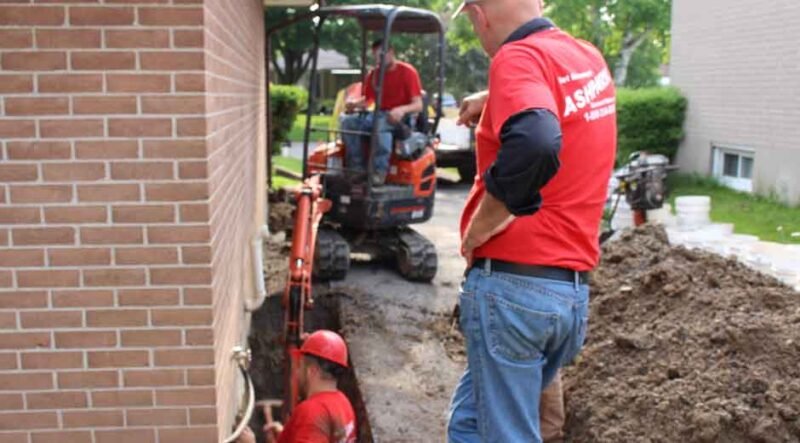
Basement waterproofing services are designed to address and prevent water-related problems in your basement. These services involve identifying sources of water entry, implementing strategies to prevent water from entering, and maintaining a dry and secure basement for the future. Here’s information on water damage and solutions that can keep your home dry:
Where Can Water Enter Your Home?
Water can seep into your basement through various weak points, many of which occur due to wear and tear or construction gaps. Water leaks commonly occur from cracks in floors and walls or from cove joint points. Some of the most common areas that may benefit from a waterproofing service include the following:
Floor Cracks
Over time, basement floors can develop cracks due to natural settling or external pressure from soil and water. These cracks create a direct path for groundwater to enter your basement. Even hairline cracks pose a risk, especially in areas with high water tables or heavy rainfall. Water pressure from beneath your foundation, also known as hydrostatic pressure, can force moisture through these openings, leading to dampness or standing water.
Wall Cracks
Foundation walls are another vulnerable area. Vertical or horizontal cracks in your basement walls often develop due to shifting soil, improper drainage, or poor initial construction. These cracks allow rainwater or groundwater to flow directly into your basement. While some cracks are merely cosmetic, others signal more serious problems with the structural integrity of your home’s foundation. Addressing wall cracks quickly can prevent further damage and help maintain a dry living space.
Floor Cove Joint
The floor cove joint, where the foundation walls and the basement floor connect, is naturally susceptible to water entry. This area can leak if there’s excessive groundwater pressure around your foundation. Improper drainage outside your home, such as clogged gutters or missing downspout extensions, can exacerbate the problem. During heavy rains or snowmelt, water can collect along your foundation and seep into your basement through this joint.
What Solutions Are Available?
There are effective ways to address water entry points and keep your basement dry. After redirecting the incoming water flow and pumping out any excess from the basement, repairs can be made to stop further leaks. Some commonly used repair solutions include:
- Crack Repair: Floor and wall cracks can be repaired using epoxy or polyurethane injections. These materials fill the cracks and create a strong, waterproof seal that prevents further seepage.
- Waterproof Coatings: Applying waterproof coatings to walls and floors is a proactive measure that blocks moisture from entering your basement. Many coatings are designed to handle high-pressure water exposure, making them a durable choice.
- Interior Drainage Systems: If groundwater is a persistent issue, an interior drainage system can help. These systems capture water before it reaches your basement floor and direct it to a sump pump, which safely removes the water from your home.
- Exterior Solutions: Outside your home, improving drainage is fundamental for long-term leak control. Installing proper gutter systems, extending downspouts, and sloping soil away from your foundation can significantly reduce water accumulation near your basement.
Why Should Leaks Be Fixed?
Ignoring basement leaks may seem like a minor inconvenience at first, but it can lead to significant problems over time. Fixing small leaks promptly is far more cost-effective than dealing with major repairs later on. Three common problems water leaks can cause are:
- Structural Damage
- Property Damage
- Financial Impact
Prolonged exposure to moisture can weaken the integrity of your foundation, causing more cracks to form and increasing the risk of extensive future repairs. Water intrusion can damage flooring, drywall, and stored items. Repeated water exposure may damage valuable possessions or necessitate the complete renovation of your basement living space.
Contact a Waterproofing Service Today
By addressing vulnerable entry points, like floor cracks, wall cracks, and floor cove joints, you can protect your home from damage and maintain its value. Waterproofing professionals are equipped to diagnose issues, recommend appropriate solutions, and offer effective long-term water protection for your basement. Don’t wait when dealing with water leaks. Contact a qualified basement waterproofing service today to safeguard your home.

